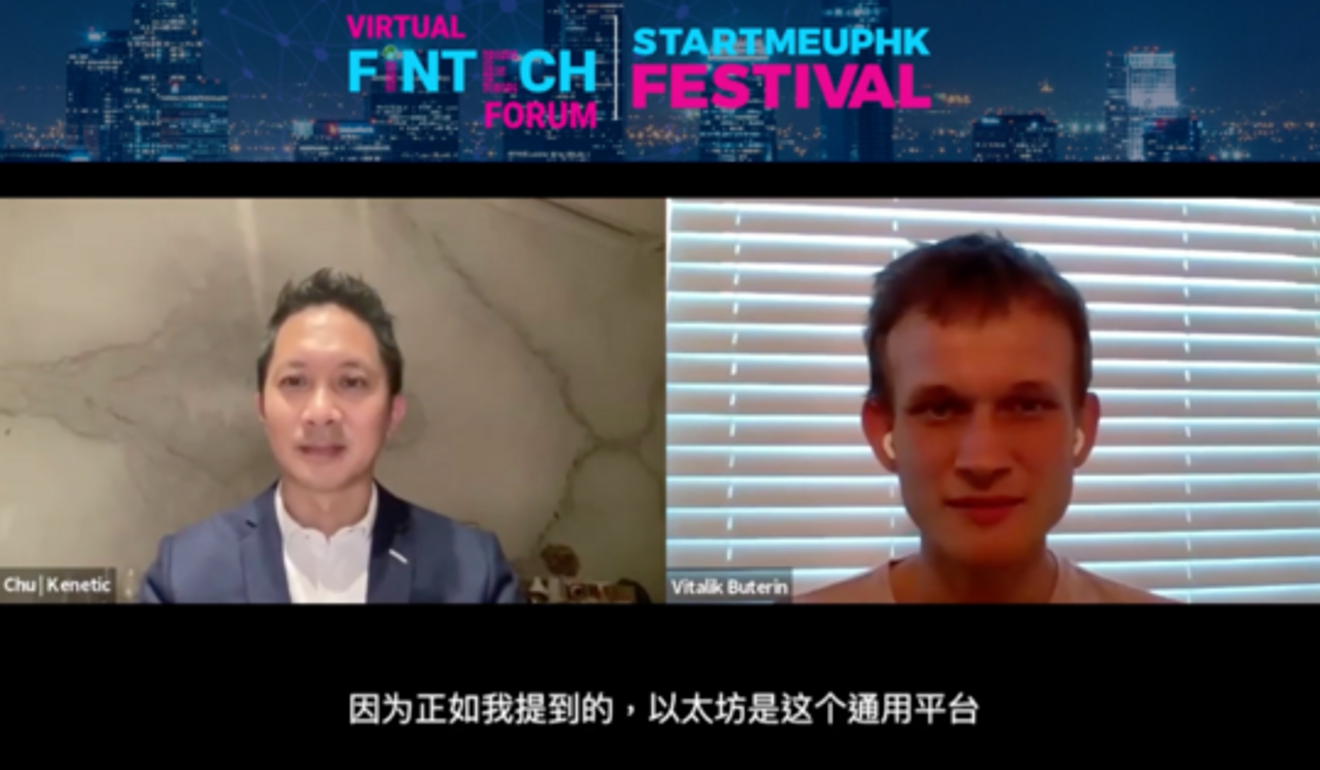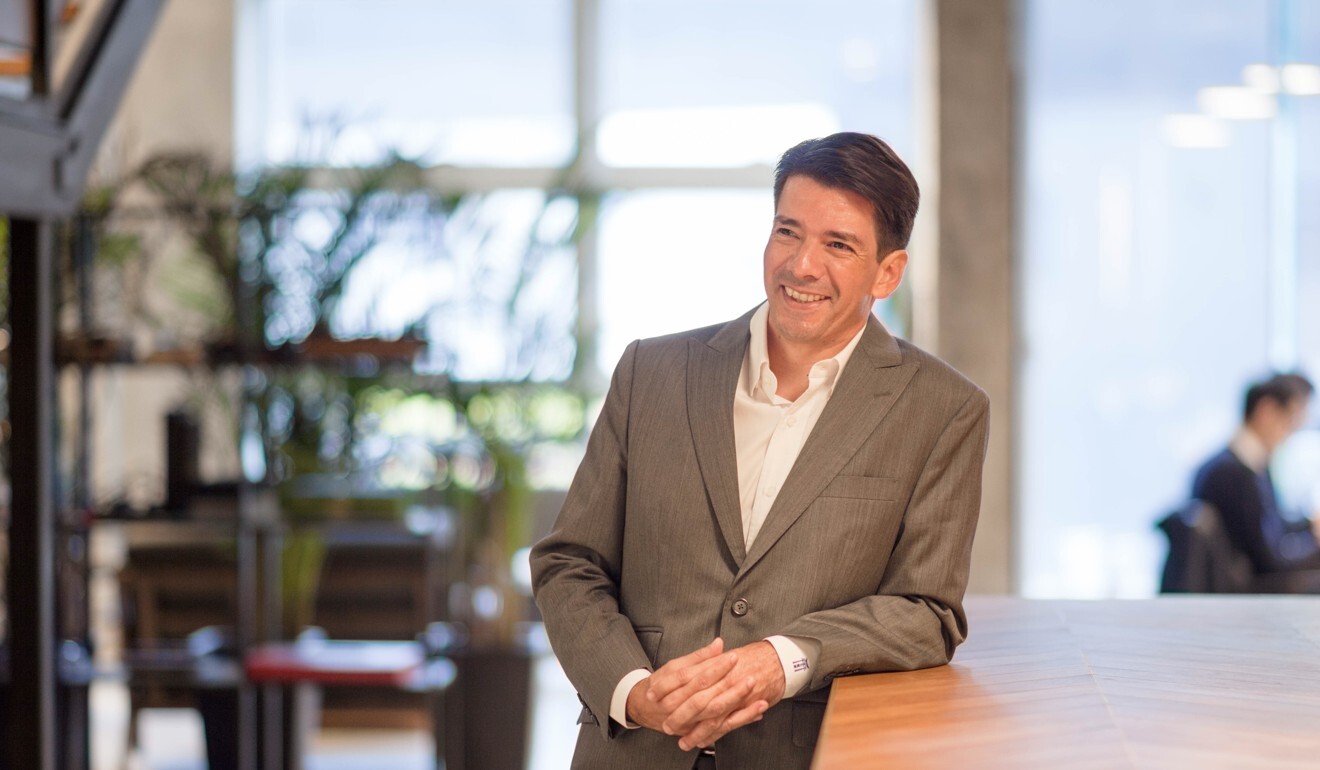
4 trends that will dominate Hong Kong’s post-pandemic start-up scene, according to experts at StartmeupHK Festival
- The Covid-19 pandemic has catalysed the growth of proptech, says Christina Gaw of Gaw Capital, who was among the speakers at the annual conference
- Mark Munoz of Vectr Fintech Partners highlights the need for increased focus on ESG, as well as the collaborative nature of the city’s fintech space
[Sponsored article]
Most of the world is now officially in economic recovery mode from the Covid-19 pandemic. Businesses are trying to make up for losses incurred during a challenging 2020, while governments are striving to prevent their countries from falling too deep into a pandemic-induced recession.
If the success of the StartmeupHK Festival 2021, held in May, is any indication, Hong Kong is quickly bouncing back as a tech and innovation hub. Initiated by government department InvestHK to showcase and connect the city’s start-up ecosystem to the world, the festival gathered almost 39,000 attendees from more than 100 countries or territories, who tuned in to hear more than 800 speakers exchanging ideas, making connections and attempting to define the future of the tech industry.

Christina Gaw, managing principal and head of capital markets at Gaw Capital Partners – a real estate-focused private equity fund management company – and Mark Munoz, managing partner at Vectr Fintech Partners, were among the festival’s vast range of panellists this year. They provided their insights on four key trends that are expected to take centre stage in the city’s start-up scene as it continues to recover from the pandemic.
Pandemic-accelerated proptech growth
The pandemic has enabled proptech to grow in an industry that so far has primarily operated offline. “Most people need to generally see assets [physically] in order to make their buying decisions,” Gaw says.
Coronavirus-related disruptions meant that companies had to leverage more tech-enabled innovations to adapt to changing times and social-distancing policies that had been put into place, Gaw observes, adding: “The real estate industry is no exception.”
There has been increased trust for and adoption of online-to-offline (O2O) platforms for real estate transactions, so those in the sector must embrace evolution and seek out proptech innovations, Gaw says.
Gaw Capital, for example, invested in Beike, which has grown during the pandemic to become China’s leading O2O platform for housing transactions and services. Beike debuted on the New York Stock Exchange in August 2020, while reports around that time indicated that Beike was open to a secondary listing in Hong Kong or mainland China as well.

The ability for customers to view spaces via virtual reality is also getting traction. This has led to what Gaw calls “exciting and innovative prospects for the proptech industry as a whole”.
Unleashed potential in the GBA
Gaw sees a broader outlook for the Greater Bay Area (GBA) in the post-pandemic era, citing the presence and development of transport links between Hong Kong and other cities in the region, including those completed under the Guangdong-Hong Kong-Macau Greater Bay Area scheme.
“[These links] have made cross-collaboration opportunities occur much more rapidly and robustly,” she says.
Gaw adds: “The GBA development is one of the critical national economic development strategies that will also enhance Hong Kong’s role in relation to mainland China’s ongoing economic growth.”
Munoz agrees, adding that much of the GBA is essentially “in Hong Kong’s backyard”, and this access to the region gives local companies an ideal way to tap new development resources, with better price points across the board.
“The pool of really smart people has now just expanded exponentially,” Munoz says. “This creates more companies, more products. It’s not just exciting, it’s happening.”
Increasing focus on ESG
More than just business buzzwords, environmental, social and corporate governance (ESG) issues are gaining greater focus from both start-ups and investors in Hong Kong as they recognise the opportunities for growth.

For Gaw Capital, the challenges arising from the pandemic have helped it more clearly understand the importance of capitalising on ESG for real estate – not only as an operational solution, but also as good business.
For example, in areas undergoing lockdowns, landlords and tenants have become concerned about facility management and safety. “[In response,] we have adopted robots for unmanned deliveries within buildings in mainland China,” Gaw says.
Gaw Capital has also invested in Switch Automation, a proptech start-up specialising in internet of things (IoT) technology. Its software transforms existing structures into smart buildings that use data to optimise operations and reduce their carbon footprints.
“It helps with saving energy, tracking and providing data for landlords and tenants on how they could effectively use their space,” Gaw explains.
There is a sense of urgency behind these efforts to expand Gaw Capital’s ESG measures, because as Gaw points out, the real estate industry contributes to about 40 per cent of global greenhouse emissions.
“So we – landlords included – should be more [open to] how to embark on and improve ESG initiatives,” she adds.
Munoz would like to see more development in the ESG space, particularly in Hong Kong. “ESG isn’t just a sector focus – it’s what every start-up and what every company should be thinking about as they’re rolling through their different growth stages,” he says.
Community fuels the fire in fintech
In Hong Kong’s fintech space, Munoz has seen “large institutions – for instance, global investment banks – willing to collaborate with venture capitalists and local [business] founders.”
“There is a strong community that has formed that fuels the fire,” he says, adding that he considers this quality to be the city’s biggest benefit and draw compared to other markets.

In addition, fintech companies have become more capable of providing their services to the small and medium-sized enterprises (SME) market. “There has been a convergence within technology of access to lower computing power, and also access to software development teams and different types of technologies and services that can now get filtered down to SMEs,” Munoz explains.
This means that SMEs now have regular access to the same kinds of financial tools that larger companies use. As an example, Munoz cites fintech start-up Neat, which counts Vectr among its investors.
Based in Hong Kong, Neat was originally founded as a debit card platform but pivoted to become a company offering banking and financial services for SMEs doing cross-border business.
“It works particularly well in the GBA,” Munoz notes. “You have exporters in Guangzhou and importers in Europe, and Neat serves as that link to provide banking services.”
Looking across the local tech landscape, both of the StartmeupHK Festival speakers are in consensus: Hong Kong will continue to attract innovative companies to its shores, further strengthening its start-up ecosystem.
Gaw believes the city will become an even more important stronghold for overseas companies looking to gain access to mainland China and the Asian markets at large. “There’s a natural geographic benefit that Hong Kong commands,” she says.
But perhaps the city’s even more vital strength is the resilience of its people. Munoz regards founders of Hong Kong-based businesses as being unafraid. “They [will] build ladders when faced by barriers, and pivot to build even more ladders when there is more surface to cover,” he says.


